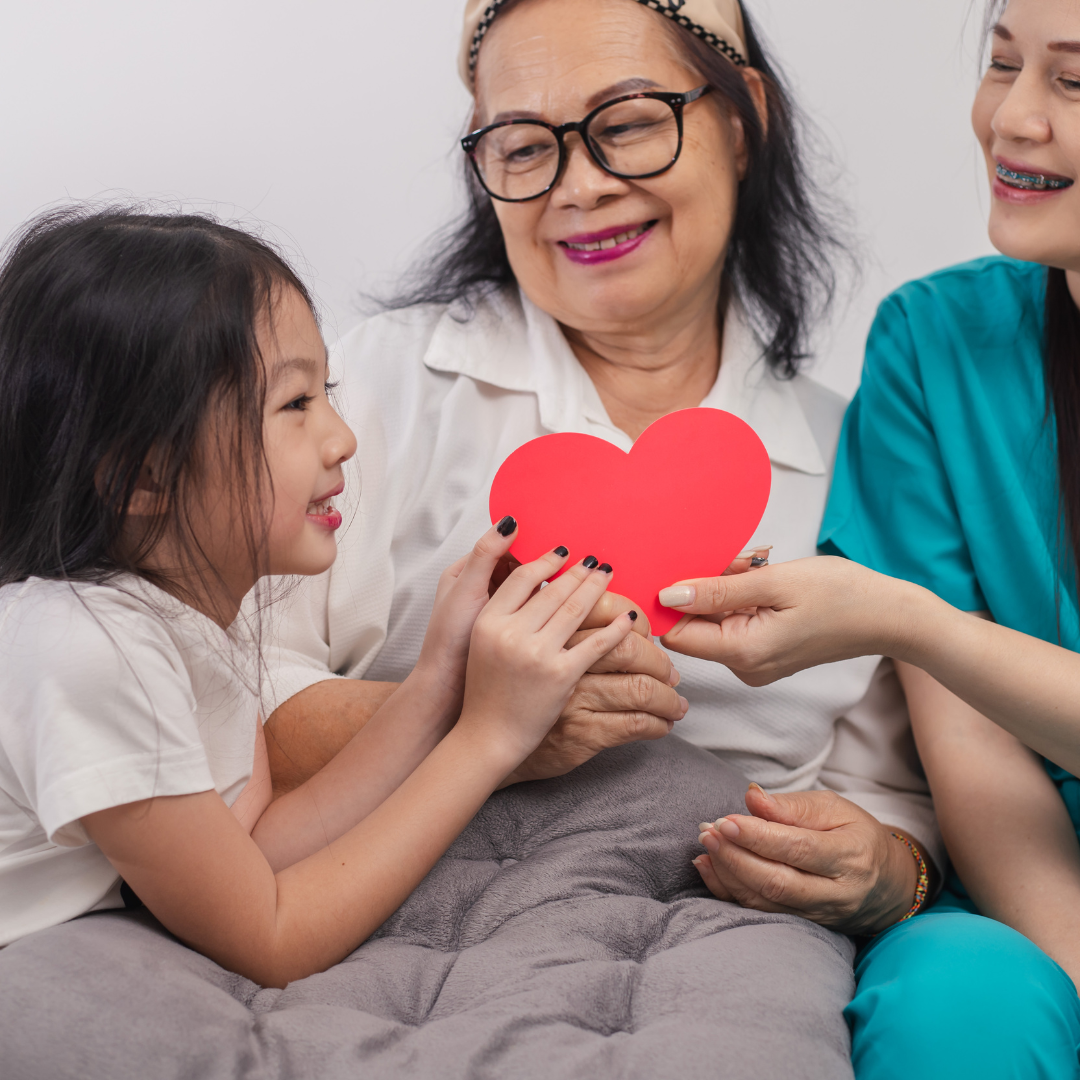"Building Connections: Socialization Opportunities in Caregiver Services"
In the realm of caregiving, the focus often lies squarely on the individual receiving care. However, the importance of fostering connections and socialization among caregivers themselves is often underestimated. In our fast-paced world, where caregiving can be isolating and overwhelming, the need for a supportive community cannot be overstated. This blog delves into the vital aspect of building connections within caregiver services, exploring the myriad of socialization opportunities available to those in this essential role. From support groups and online forums to local meetups and workshops, caregivers are finding solace and strength in coming together to share experiences, seek advice, and simply connect with others who understand their journey. By fostering these connections, caregiver services not only provide practical assistance but also create a supportive network that empowers individuals to navigate the challenges of caregiving with resilience and compassion. Join us as we explore the transformative power of socialization in caregiver services and the profound impact it has on both caregivers and those they care for.
New Paragraph
Socialization plays a vital role in caregiver services, as it provides numerous benefits for both caregivers and care recipients. Beyond addressing physical and medical needs, socialization offers opportunities for meaningful connections, emotional well-being, and an overall improved quality of life. In this article, we will delve into the importance of socialization in caregiver services and highlight the positive impact it can have on individuals involved in the caregiving journey.

Reducing Social Isolation
Caregiving can often lead to social isolation, as caregivers and care recipients may spend significant amounts of time at home or have limited opportunities for interaction. Socialization in caregiver services helps combat this isolation by providing avenues for social engagement and connection. By fostering social interactions, caregivers can create a supportive network that alleviates feelings of loneliness and enhances overall well-being.
Enhancing Emotional Well-being
Socialization provides emotional support and a sense of belonging. Care recipients may experience feelings of loneliness, depression, or anxiety due to their health conditions or limitations. Regular social interaction with caregivers and others can help alleviate these negative emotions and improve emotional well-being. Engaging in conversations, sharing experiences, and participating in enjoyable activities can uplift spirits and bring joy to both caregivers and care recipients.
Cognitive Stimulation
Socialization opportunities in caregiver services often involve engaging activities that provide cognitive stimulation. Interacting with others, participating in group discussions, and playing games can help maintain cognitive function and mental acuity. These activities provide opportunities for learning, problem-solving, and memory recall, which are essential for maintaining cognitive health.
Promoting Physical Health
Socialization can also have a positive impact on physical health. Engaging in social activities often involves physical movement and exercise, which can improve mobility, strength, and overall physical well-being. Additionally, socialization can reduce stress levels, boost the immune system, and promote better sleep patterns, all of which contribute to improved physical health.
Building Meaningful Connections
Socialization in caregiver services allows individuals to build meaningful connections and relationships. Care recipients can form bonds with their caregivers, creating a sense of trust, companionship, and emotional support. Caregivers, on the other hand, can benefit from the relationships they develop with care recipients, finding fulfillment in making a positive difference in someone's life.
Support Groups for Caregivers and Care Recipients
Support groups play a vital role in providing emotional support, guidance, and a sense of community for both caregivers and care recipients. These groups create a safe space where individuals can share their experiences, challenges, and triumphs with others who understand the unique journey of caregiving. In this article, we will delve into the importance of support groups for caregivers and care recipients, exploring the benefits they offer and how they foster connections and personal growth.

- Understanding the Role of Support Groups: Support groups bring together individuals who are facing similar caregiving experiences, whether as caregivers or care recipients. These groups provide a platform for sharing stories, exchanging practical advice, and offering emotional support. They create a sense of belonging and understanding, helping participants feel less isolated and more empowered.
- Emotional Support and Validation: Caregiving can be emotionally challenging, and support groups provide a safe space for caregivers and care recipients to express their feelings without judgment. Participants can openly discuss their emotions, fears, and frustrations, knowing that others in the group can relate. This validation and empathy help alleviate stress and promote emotional well-being.
- Practical Advice and Coping Strategies: Support groups offer a wealth of practical advice and coping strategies from individuals who have firsthand experience in caregiving. Participants can learn from each other's successes and failures, gaining valuable insights into managing caregiving responsibilities, navigating healthcare systems, and maintaining self-care.
- Building a Supportive Community: Support groups foster a sense of community among caregivers and care recipients. Participants develop meaningful connections with others who understand their challenges and can offer guidance and encouragement. This sense of belonging helps combat feelings of isolation and provides a network of support beyond the group meetings.
- Education and Information Sharing: Support groups often invite guest speakers or professionals who provide educational sessions on relevant topics. These sessions can cover subjects such as caregiving techniques, legal and financial considerations, and accessing community resources. Participants gain valuable knowledge and resources to enhance their caregiving journey.
Creative Arts and Therapeutic Activities: Expressing and Connecting
Creative arts and therapeutic activities offer a powerful means of expression and connection for both caregivers and care recipients. Engaging in creative outlets such as art, music, dance, and other forms of expression can have profound emotional, cognitive, and physical benefits. In this article, we will explore the significance of creative arts and therapeutic activities in caregiving, highlighting how they promote self-expression, foster connections, and enhance overall well-being.
The Power of Creative Expression
Creative arts provide a non-verbal and expressive outlet for individuals, allowing them to communicate thoughts, emotions, and experiences that may be difficult to express verbally. Through art, music, dance, and other creative mediums, caregivers and care recipients can tap into their inner creativity and find a unique voice for self-expression.
Emotional Release and Stress Reduction
Engaging in creative activities can serve as a form of emotional release, helping to alleviate stress, anxiety, and other overwhelming emotions associated with caregiving. Caregivers and care recipients can channel their feelings into their art, music, or movement, providing a healthy and constructive way to process and release emotions.
Enhancing Cognitive Abilities
Creative arts and therapeutic activities stimulate cognitive functioning and promote brain health. For care recipients, participating in activities such as painting, playing a musical instrument, or engaging in dance can improve memory, attention, and problem-solving skills. Caregivers can also benefit from these activities, as they provide mental stimulation and a break from the demands of caregiving.
Promoting Physical Well-being
Creative arts and therapeutic activities can have physical benefits as well. Dance, yoga, and other movement-based activities can improve flexibility, strength, and balance, contributing to overall physical well-being for both caregivers and care recipients. Engaging in creative activities can also boost energy levels and promote a sense of vitality.
Building Connections and Social Engagement
Participating in creative arts and therapeutic activities offers opportunities for socialization and connection. Caregivers and care recipients can join group classes, workshops, or community programs that focus on creative expression. These shared experiences foster connections with others who have similar interests, creating a sense of community and support.
Conclusion
Home Matters Caregiving, we understand the importance of building connections and socialization opportunities in caregiver services. We believe that fostering social connections enhances the well-being of both caregivers and care recipients. Through support groups, creative arts, and therapeutic activities, we provide a platform for individuals to express themselves, find emotional support, and form meaningful connections. Our goal is to create a supportive community where caregivers and care recipients can share their experiences, learn from one another, and find solace in knowing they are not alone on their caregiving journey. Contact us at (800) 298-5140 to learn more about how we prioritize socialization and connection in our caregiving services.


